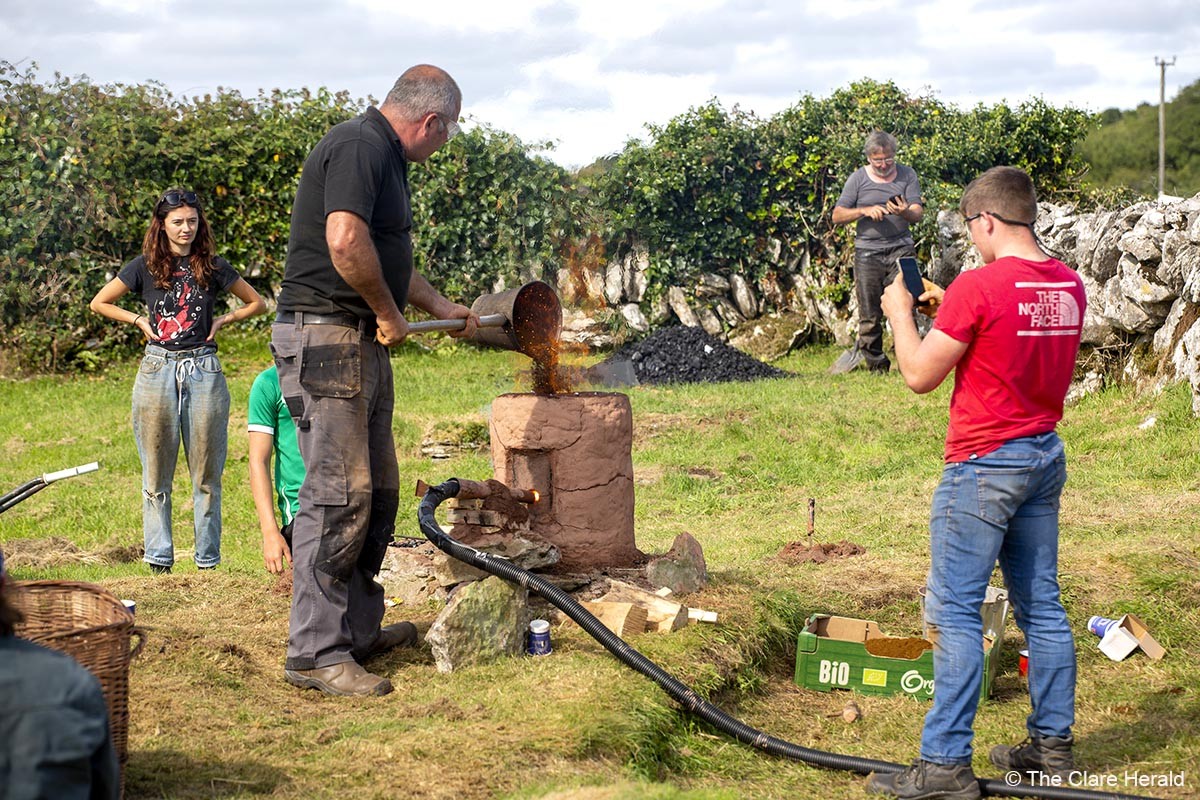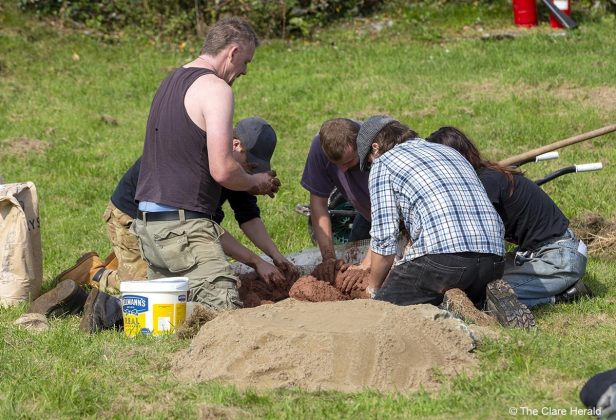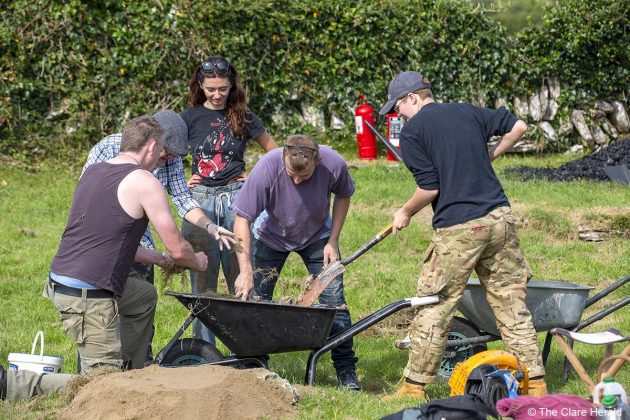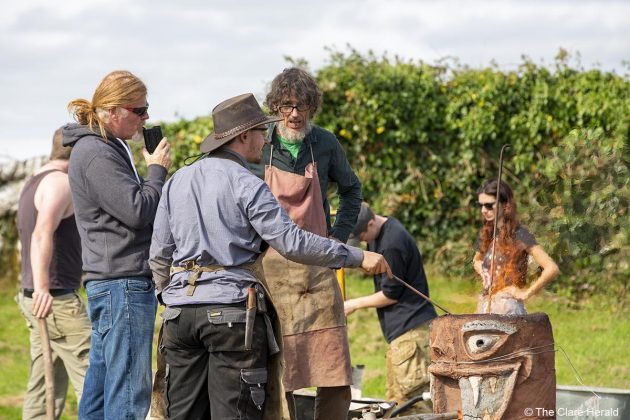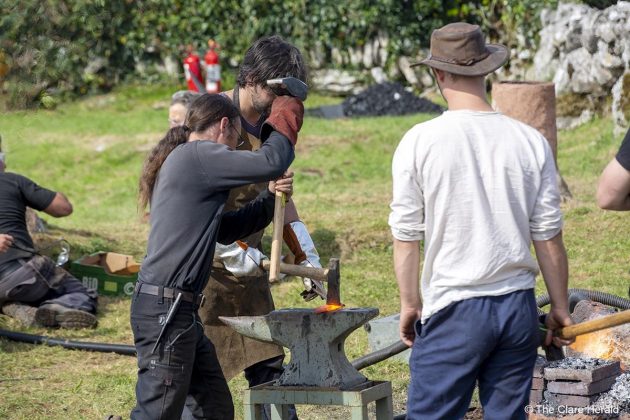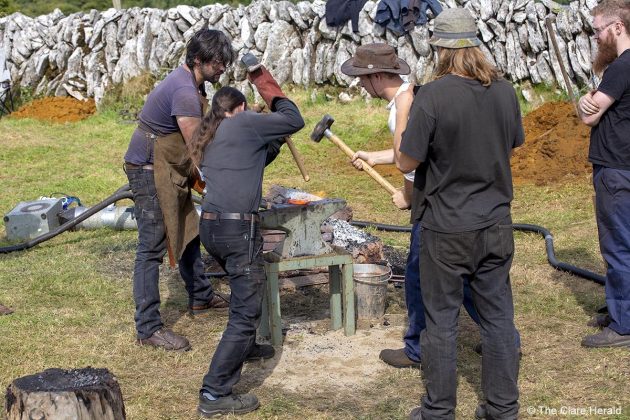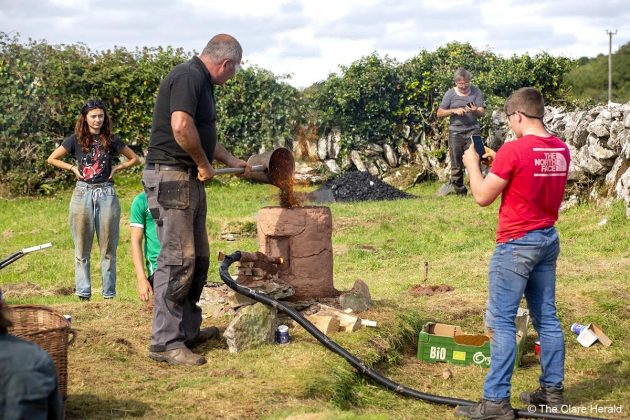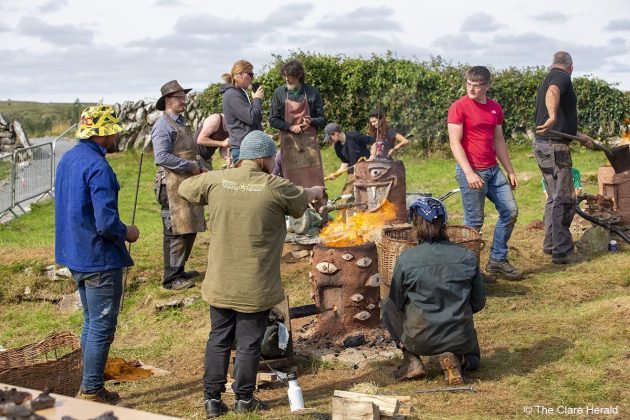More than 50 blacksmiths and traditional iron smelters from across Ireland, the UK, Europe and the USA will participate in a showcase of medieval iron smelting and forging in the heart of the Burren in County Clare on the weekend of August 26th and 27th.
The second annual Caherconnell International Furnace Festival will see the 1,000-year-old Caherconnell Stone Fort, once home to Gaelic Chieftains, being transformed into an open-air museum as iron is smelted on site before being forged into replicas of arrowheads, knives and belt buckles excavated at the medieval site.
Experts will provide a running commentary throughout the event, while this year’s family fun weekend also is offering an opportunity for the public to actively learn more about and participate in the smelting process.
Danish iron smelter and blacksmith Jens Jørgen Olesen, who is considered one of Europe’s best bloomery iron smelters will host two one-day-courses during which he will teach trainees the skills required to produce their own iron.
The Furnace Festival School also is offering starter courses to people wishing to join a smelting team and learn about making bloomery iron from the iron ore. Participants can visit the forging area where experienced blacksmiths will be forging the freshly made objects into objects of art and practical use, including replicas of objects found during archaeological excavation at Caherconnell Fort. On Sunday, School participants also can enjoy a demonstration by acclaimed heritage blacksmith Rowan Taylor, who will be forging a replica of an Irish Iron Age axe from freshly made bloomery iron.
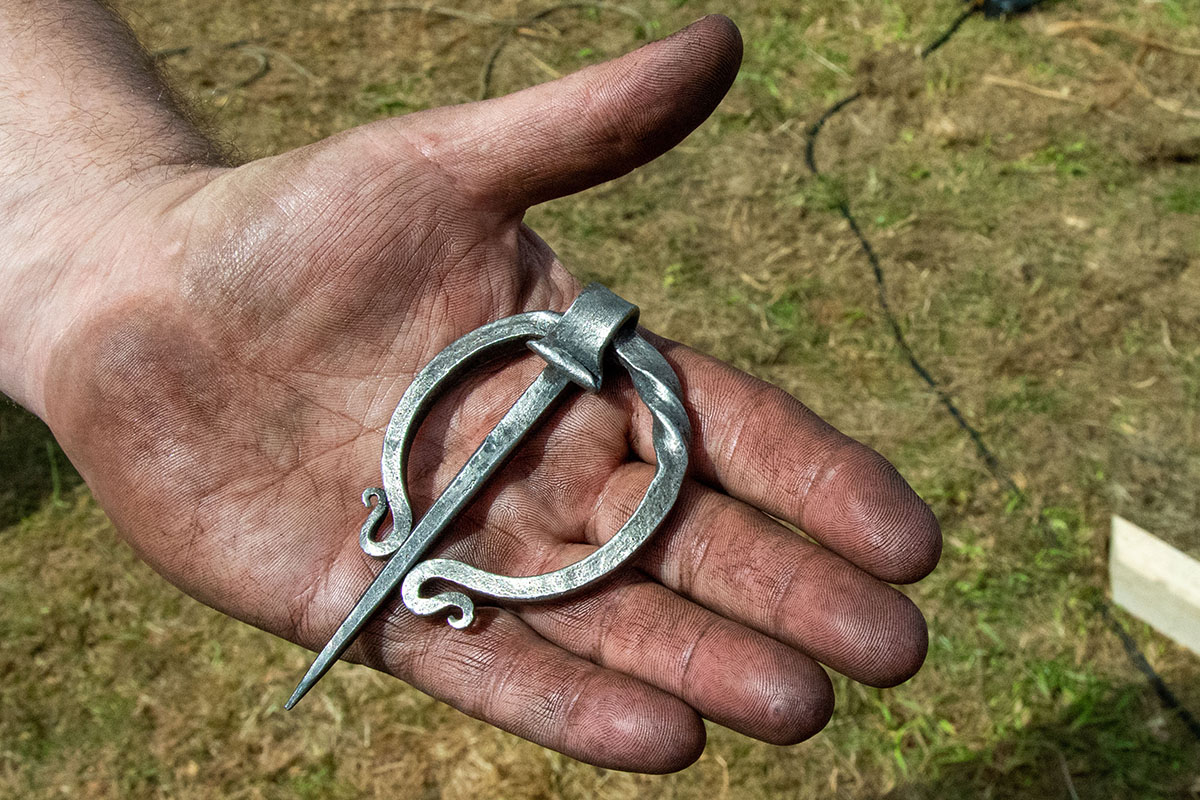
Funded by The Heritage Council, Geological Survey of Ireland (GSI), Fáilte Ireland and Clare County Council, and supported by the Burren & Cliffs of Moher UNESCO Global Geopark, the Caherconnell International Furnace Festival is organised by the Irish Iron Heritage Foundation.
Foundation member and Irish Smelting Archaeologist Dr. Paul Rondelez said, “We are very excited to bring this unique festival back to Caherconnell where evidence of iron smelting dating back more than 1,000 years has been uncovered in recent years. Last year’s event was a huge success, and we are looking forward to once again demonstrating the vital role played by iron in Medieval Ireland from everyday implements and tools to warfare and building.”
The iron being produced at the festival is known as bloomery iron, of which every iron and steel object produced in Ireland between 500 BC and 1500 AD was made. The iron was used in every sword, arrowhead and battle axe in the many wars fought during that period, and also was used in the tools used to farm land, build castles, churches, bridges, ships and houses, and to cut the ancient forests.
*Some images from last year’s inaugural event.
Dr. Eamon Doyle, Geologist with the Burren & Cliffs of Moher UNESCO Global Geopark, said the open-air museum where we tell the story of iron in Ireland is a key feature of the festival.
“We want to acknowledge Ireland’s smelting heritage, but also reflect how many of the ancient practices engaged in iron making continue to this day,” he added. “The replacement of wrought iron by mild steel and a general change in the global economy during the 20th century led to significant changes in Irish blacksmithing. To this day however, blacksmiths still work in Ireland, from the farriers looking after the horse stock in the country to those hand-forging gates. You can meet many of these skilled Irish blacksmiths at the Caherconnell International Furnace Festival.”
To find out more about the history of iron in Ireland, you can visit the open-air museum at Caherconnell Stone Fort or join the free guided tours at the Caherconnell International Furnace Festival. Pre-booking tickets for the upcoming festival is advised as there is limited visitor capacity on site at Caherconnell Stone Fort, as well as for the Schools and Workshop. See www.furnacefestival.ie.
*Check out this episode of Atlantic Tales on Clare FM recording at last year’s festival.
